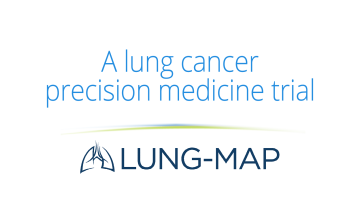S1512 at AACR: IO for Desmoplastic Melanoma
Close to 90 percent of patients with unresectable (inoperable) desmoplastic melanoma, a rare form of skin cancer, saw their cancer improve after treatment with the immunotherapy drug pembrolizumab in a recent clinical trial.
These results from the S1512 trial conducted by the SWOG Cancer Research Network, a group funded by the National Cancer Institute (NCI), are being delivered in an oral presentation at the clinical trials plenary session of the 2023 annual meeting of the American Association for Cancer Research (AACR) in Orlando, Florida, on April 16th.
The S1512 trial was led by Kari Kendra, MD, PhD, a SWOG investigator and medical oncologist with The Ohio State University Comprehensive Cancer Center – Arthur G. James Cancer Hospital and Richard J. Solove Research Institute (OSUCCC – James).
“The 89% overall response in patients with desmoplastic melanoma is one of the highest responses seen for solid tumors using single agent PD-1 blockade,” said Dr. Kendra, who will present the results at the AACR meeting and who also serves as professor of internal medicine and chair of the Melanoma Disease Specific Research Committee at The Ohio State University Wexner Medical Center.
Desmoplastic melanoma is a rare form of malignant skin cancer that tends to occur on highly sun-exposed areas of the body, such as the head and neck. Earlier research suggested it might respond well to treatment with a type of immunotherapy known as PD-1 blockade therapy.
Working from this base, Dr. Kendra and her colleagues designed the S1512 clinical trial to test the effectiveness of the PD-1 inhibitor pembrolizumab in patients with the disease.
The trial enrolled two cohorts of patients with desmoplastic melanoma – those who had cancer that was considered to be treatable with surgery (Cohort A) and those whose melanoma had spread, or metastasized, and was considered to be inoperable (Cohort B).
Dr. Kendra reported results from patients in S1512 Cohort A at last year’s annual meeting of the American Society of Clinical Oncology. The new findings she will present at the 2023 AACR meeting are from patients in Cohort B – patients with unresectable disease.
The trial enrolled 27 eligible patients to Cohort B, all of whom were treated with 200 mg of pembrolizumab every three weeks for up to two years. Their tumors were measured every nine weeks to determine whether they had shrunk, remained stable, or grown or spread.
Of these 27 patients, 9 had their melanoma show a complete response to the immunotherapy, meaning no evidence of their tumors could be found after treatment. In another 15 patients, the disease showed a partial response to the therapy, meaning their tumors had shrunk or decreased in number. Overall, desmoplastic melanoma in 24 of the 27 patients responded to treatment, an objective response rate of 89 percent. One additional patient’s disease remained stable during treatment. Treatment-related toxicities reported by patients were consistent with reports from other clinical trials of pembrolizumab.
“This study demonstrates that advanced desmoplastic melanoma is among the cancers with the highest response rate to single agent PD-1 blockade immunotherapy, and supports the notion that patients with this cancer can be spared the potential toxicities of other treatments like extensive surgery, radiation, and combination therapies,” said Antoni Ribas, MD, senior author on the AACR abstract and director of the Tumor Immunology Program at UCLA Jonsson Comprehensive Cancer Center.
Study S1512 is supported by the NCI, part of the National Institutes of Health (NIH), led by SWOG, and conducted by the NIH-funded NCI National Clinical Trials Network (NCTN). The study was funded by the NIH/NCI through grants CA180888 and CA180819, and in part by Merck & Co., Inc., Rahway, NJ, USA, including through a Cooperative Research and Development Agreement between NCI and Merck.
In addition to Drs. Kendra and Ribas, coauthors on the AACR abstract included Shay Bellasea, of SWOG Statistics and Data Management Center and Fred Hutchinson Cancer Center; Zeynep Eroglu, of Moffitt Cancer Center; Siwen Hu-Lieskovan, of Huntsman Cancer Center; Katie M. Campbell, of UCLA Jonsson Comprehensive Cancer Center; William Carson III, of The Ohio State University; David Wada, of Huntsman Cancer Center; Jose A. Plaza, of The Ohio State University; Jeffrey A. Sosman, of Northwestern University; Gino In, of USC Norris Comprehensive Cancer Center; Alexandra Ikeguchi, of University of Oklahoma Medical Center; John Hyngstrom, of Huntsman Cancer Center; Andrew Brohl, Nikhil Khushalani, and Joseph Markowitz, all of Moffitt Cancer Center; George Negrea, of Lewis Cancer and Research Pavilion; Samer Kasbari, of Southeastern Medical Oncology Center; Gary C. Doolittle, of University of Kansas Cancer Center; Umang Swami, of Huntsman Cancer Center; Toni Roberts, of Saint Michael Cancer Center; Sapna Patel, of MD Anderson Cancer Center; Elad Sharon, of Cancer Therapy Evaluation Program, Division of Cancer Treatment and Diagnosis, National Cancer Institute; and James Moon and Michael C. Wu, both of SWOG Statistics and Data Management Center and Fred Hutchinson Cancer Center. The S1512 study team also included the late Valerie Guild and Samantha Guild, representing the voice of the patient in the development and conduct of the trial.
Reference:
Kendra, K. et al. S1512: High response rate with single agent anti-PD-1 in patients with metastatic desmoplastic melanoma [abstract]. In: Proceedings of the 114th Annual Meeting of the American Association for Cancer Research; 2023 April 14-19; Orlando, FL. Philadelphia (PA): AACR; 2023. Abstract nr CT009
Session Title: Hope for Rare Cancers: Novel Targeted and Immunotherapy Agents
Session Date and Time: Sunday Apr 16, 2023 3:30 PM - 5:30 PM
Other Recent Stories



